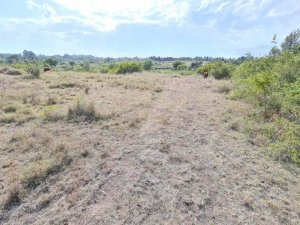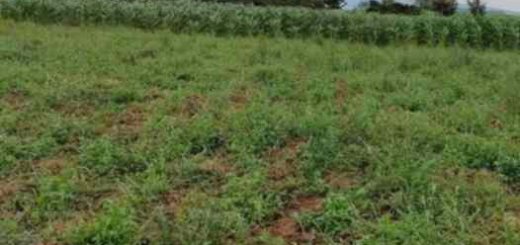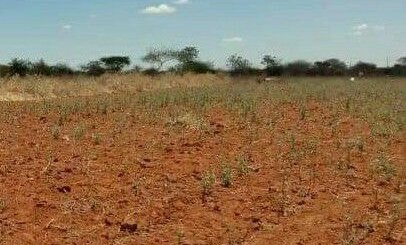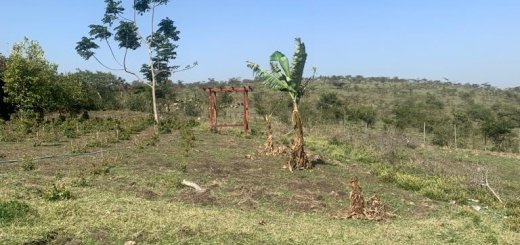Land for Lease Kimana – Unlock Lucrative Opportunities for Your Business

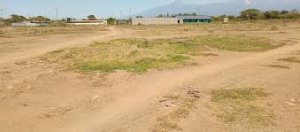
land for lease kimana
Introduction
Kimana, a region boasting natural beauty and untapped potential, opens its doors to those seeking opportunities through land leasing. This guide aims to demystify the intricacies of leasing land in Kimana, providing valuable insights for individuals and businesses looking to make a prudent investment move.
Understanding Land Leasing in Kimana
In Kimana, various types of land are available for lease, each with its unique set of possibilities. Understanding the duration and terms of land leases is crucial, as is navigating the legal landscape surrounding such agreements. This section aims to provide a foundational understanding to set you on the right path.
Diverse Land Usage Possibilities
When exploring the vibrant prospect of land for lease in Kimana, one is immediately struck by the diverse land usage possibilities that unfold in this unique region. Kimana, with its rich and varied landscapes, opens up a tapestry of opportunities for lessees seeking more than just a piece of ground. Let’s delve into the diverse possibilities that make land for lease in Kimana a canvas for various ventures.
In the realm of land for lease Kimana, agricultural pursuits stand out prominently. Lessees have the chance to cultivate the fertile soil of Kimana, tapping into the agricultural potential that this region holds. From small-scale organic farms to larger commercial enterprises, the agricultural possibilities are vast and varied. The temperate climate and ample sunlight further enhance the appeal of Kimana as a fertile ground for cultivating crops and fostering agribusiness ventures.
Another intriguing facet within the spectrum of land for lease Kimana is the potential for commercial and industrial usage. The region’s strategic location, with its accessibility to key amenities and transportation hubs, positions it as an ideal destination for businesses seeking a dynamic environment. Lessees can explore establishing warehouses, factories, or other commercial structures, capitalizing on the convenience and accessibility that Kimana offers.
Furthermore, the natural beauty of Kimana presents an exciting opportunity for eco-friendly ventures. The diverse landscapes, encompassing lush forests and picturesque surroundings, create an ideal setting for ventures aligned with environmental sustainability. Lessees may consider eco-tourism initiatives, creating nature retreats, or engaging in sustainable practices that contribute positively to the region’s ecology.
Within the spectrum of land for lease Kimana, there is also room for recreational and leisure developments. Imagine leasing a parcel of land to create a serene retreat, a camping site, or even a recreational facility. With Kimana’s natural charm and potential for outdoor activities, such ventures can cater to the growing demand for recreational spaces, offering both locals and tourists a place to unwind and connect with nature.
Moreover, the dynamic land usage possibilities extend to the realm of research and education. Academic institutions or research organizations may find leasing land in Kimana as an opportunity to establish field stations or research facilities. The proximity to diverse ecosystems and the potential for unique environmental studies make Kimana an attractive destination for educational and research ventures.
As we navigate the diverse land usage possibilities in Kimana, it becomes evident that this region transcends the conventional expectations of land for lease. It transforms into a canvas where entrepreneurs, farmers, environmentalists, and educators can paint their visions, creating a mosaic of diverse endeavors that contribute to the growth and vibrancy of Kimana.
Environmental Considerations
Preserving the natural landscape and adhering to eco-friendly practices are integral aspects of land leasing in Kimana. This not only aligns with responsible business practices but also contributes to the overall sustainability of the region. Discover how leasing land can be harmoniously integrated with the local ecology.
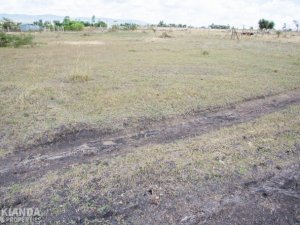
land for lease kimana
Benefits and Challenges of Land Leasing in Kimana
- Cost-Effective Entry: For entrepreneurs and businesses looking to establish a presence in Kimana, leasing land provides a cost-effective entry point. It eliminates the hefty upfront costs associated with land for lease Kimana purchase, allowing resources to be allocated to other critical aspects of the venture.
- Flexibility in Land Use: Land for lease Kimana provides the flexibility to tailor the use of the land to specific needs. Whether for agricultural purposes, commercial ventures, or industrial activities, lessees can adapt the space according to their business requirements.
- Strategic Location Advantages: Accessing prime locations in Kimana becomes feasible through land for lease Kimana. Lessees can strategically position their ventures in areas with high potential for growth, proximity to key amenities, and convenient transportation access.
- Reduced Administrative Burden: Unlike land ownership, leasing involves fewer administrative responsibilities. Property maintenance, taxes, and other related tasks often remain the responsibility of the landowner, allowing lessees to focus on their core business operations.
- Diverse Land Size Options: Land for lease Kimana comes in various sizes, accommodating the needs of different businesses. Whether a small parcel for a start-up or a larger expanse for an expansive project, lessees can find suitable options.
Challenges of Land Leasing in Kimana
- Limited Control: Unlike land ownership, lessees have limited control over the property. Certain activities may require the landowner’s approval, and long-term development plans may be constrained by the terms of the land for lease Kimana agreement.
- Uncertain Lease Renewal: Lease agreements in Kimana may have finite durations, and securing lease renewals can be uncertain. This lack of long-term certainty can pose challenges for businesses that rely on stable and predictable locations.
- Investment without Ownership: Lessees invest in improving the leased land, but they don’t gain equity through ownership. This dynamic can be a drawback for businesses seeking to build assets over time.
- Environmental and Regulatory Compliance: Businesses leasing land for lease Kimana must adhere to environmental and regulatory standards. Ensuring compliance can be challenging, requiring lessees to stay informed about evolving regulations and invest in sustainable practices.
- Dependency on Landowner: Lessees depend on the cooperation of the landowner for various aspects, including property maintenance, utilities, and adherence to land for lease Kimana terms. Any lack of cooperation or communication can lead to challenges for the lessee.
Negotiating a Land Lease Agreement
- Understanding Local Dynamics: To initiate successful negotiations for land for lease in Kimana, it’s essential to delve into the local dynamics. Factors such as demand for specific land uses, prevalent lease terms, and the regulatory landscape all play a significant role. Local insights will enable you to tailor your negotiation strategy to the specific conditions of Kimana.
- Leveraging Market Trends: Keeping a finger on the pulse of current market trends is paramount. Understanding the demand for specific types of land uses, whether it’s for agricultural, commercial, or industrial purposes, provides a foundation for informed negotiations. Utilize this knowledge to showcase how your proposed lease aligns with prevailing market demands.
- Addressing Environmental Considerations: In the context of land for lease in Kimana, environmental sustainability is a key consideration. Ensure your negotiation strategy incorporates eco-friendly practices and highlights your commitment to preserving the natural landscape. This not only aligns with responsible business practices but can also enhance the appeal of your proposal.
- Emphasizing Mutual Benefits: A successful land lease agreement is one where both parties benefit. Emphasize how the proposed lease is not only advantageous for your business but also mutually beneficial for the landowner and the community. Showcase how your venture aligns with the goals of sustainable development and community well-being in Kimana.
- Community Integration: Highlighting your commitment to integrating with the local community can be a persuasive negotiating tactic. Discuss any community-driven initiatives your business plans to undertake, showcasing a collaborative approach that goes beyond the basic terms of the lease. This not only builds goodwill but also addresses community concerns.
- Infrastructure Development: If your land use plans involve infrastructure development, clearly articulate how these developments will not only benefit your business but also contribute positively to the broader Kimana community. Infrastructure improvements can be a compelling point in negotiations, especially when linked to the region’s growth and progress.
- Market-Driven Rental Rates: When discussing rental rates, ensure they align with market standards in Kimana. Demonstrating awareness of prevailing rates adds credibility to your negotiation stance. Phrase your proposals in a way that emphasizes fair compensation for the landowner while acknowledging the economic realities of the local market.
- Long-Term Vision: Conveying a long-term vision for your venture in Kimana can instill confidence in the landowner. Discuss how your plans align with the future development and growth of the region, emphasizing stability and commitment.
Future Trends in Kimana Land Leasing
1. Sustainable Land Use Practices
The future of land leasing in Kimana is moving towards a more sustainable and environmentally conscious approach. Lessees are increasingly considering eco-friendly practices that preserve the natural landscape while utilizing the land for various purposes. The integration of sustainable agriculture, renewable energy projects, and responsible development is becoming a focal point within the land for lease Kimana arena.
2. Technology Integration in Agriculture
In the context of agricultural land for lease in Kimana, a notable trend is the integration of technology. Precision farming techniques, IoT (Internet of Things) applications, and advanced data analytics are being employed to optimize agricultural productivity. Prospective lessees should be cognizant of these technological advancements to ensure efficient land utilization.
3. Flexibility in Lease Terms
The traditional models of long-term leases are witnessing a shift towards more flexible arrangements. Short-term leases and lease options are gaining popularity, providing lessees with the agility to adapt to changing business landscapes. This flexibility accommodates various industries, allowing businesses to test the waters before committing to extended leasing terms.
4. Mixed-Use Developments
An emerging trend in Kimana is the concept of mixed-use developments on leased land. This involves combining residential, commercial, and recreational spaces within a single development. The aim is to create vibrant and self-sustaining communities, catering to diverse needs and preferences. Such developments redefine the traditional approach to land use and leasing in Kimana.
5. Integration of Smart Infrastructure
With the rise of smart cities globally, Kimana is also witnessing the integration of smart infrastructure in land leasing projects. This includes the implementation of intelligent transportation systems, energy-efficient utilities, and technology-driven security measures. Lessees exploring opportunities in Kimana should be attuned to the growing importance of smart infrastructure in enhancing the overall appeal of leased land.
6. Community-Driven Initiatives
A noteworthy trend is the emphasis on community-driven initiatives in land leasing projects. Businesses are increasingly recognizing the importance of fostering positive relationships with local communities. This involves collaborative projects, skill development programs, and shared resources that contribute to the well-being and development of the community surrounding the land for lease Kimana.
7. E-commerce Warehousing and Distribution Centers
As e-commerce continues to thrive, there is a growing demand for strategically located warehousing and distribution centers. Lessees considering commercial land in Kimana can tap into this trend by establishing e-commerce logistics hubs. The region’s strategic location can serve as a logistical gateway, catering to the expanding needs of online retail.
8. Green Spaces and Recreational Developments
An increased focus on quality of life is driving the trend of incorporating green spaces and recreational developments in leased land projects. Whether for residential or commercial purposes, creating environments that promote well-being and leisure is becoming a priority. This trend aligns with the broader shift towards sustainable and people-centric land use.
9. Adaptive Reuse of Industrial Spaces
In the realm of industrial land leasing, a trend gaining momentum is the adaptive reuse of existing structures. Repurposing industrial spaces for new ventures or transforming them into creative hubs contributes to sustainable development. Lessees with an eye for innovation can explore opportunities to breathe new life into existing industrial land in Kimana.
10. Regulatory Transparency and Digital Platforms
The future of land leasing in Kimana is expected to witness increased regulatory transparency. Digital platforms facilitating transparent transactions, efficient documentation processes, and simplified communication between lessors and lessees are likely to become integral. Staying informed about these technological advancements is crucial for navigating the administrative aspects of land leasing.
Tips for Prospective Lessees
1. Thorough Research: Before delving into the leasing process, conduct comprehensive research on the available land for lease in Kimana. Familiarize yourself with the diverse options, including agricultural, commercial, and industrial plots. This foundational knowledge will empower you to make informed decisions aligned with your specific needs and aspirations.
2. Define Your Purpose: Clearly define the purpose for which you are seeking land for lease in Kimana. Whether it’s for agricultural endeavors, establishing a business, or other ventures, having a well-defined purpose will guide your search and ensure that the leased land aligns with your goals.
3. Local Legal Understanding: Given the unique legal landscape, it’s crucial to understand the local regulations and legal considerations surrounding land leasing in Kimana. Seek professional advice to navigate through any complexities and ensure that your leasing agreement adheres to all legal requirements.
4. Environmental Impact Assessment: Considering the ecological sensitivity of the region, conduct an environmental impact assessment before finalizing any land for lease Kimana agreements. Ensure that your proposed activities on the leased land align with sustainable and eco-friendly practices, contributing positively to the local environment.
5. Engage with the Local Community: Building positive relationships with the local community is not only a best practice but also a key factor in the success of your land leasing venture. Engage with community members, understand their needs and concerns, and explore collaborative projects that benefit both parties.
6. Infrastructure and Utilities Check: Assess the existing infrastructure and utilities available for the land for lease Kimana. This includes water, electricity, and telecommunication facilities. Understanding the infrastructure in place will influence the feasibility and success of your planned activities on the leased land.
7. Negotiation Strategies: Develop effective negotiation strategies when engaging with landowners or authorities in Kimana. Clearly communicate your intentions, be flexible in discussions, and ensure that the terms and conditions of the lease are fair and mutually beneficial.
8. Duration and Flexibility: Consider the duration of the land lease carefully. Whether short-term or long-term, the lease duration should align with your business or personal goals. Additionally, build flexibility into the agreement to accommodate potential changes in your plans or the evolving needs of your venture.
9. Due Diligence: Conduct thorough due diligence on the land you are considering for lease. Inspect the physical conditions, assess any potential environmental challenges, and verify the accuracy of legal documentation. A meticulous due diligence process will mitigate risks and ensure a smoother leasing experience.
10. Stay Informed on Future Developments: Stay informed about future developments and trends in Kimana. Understanding the evolving landscape will position you strategically, allowing you to anticipate changes that might impact the value and demand for land for lease in Kimana.
Conclusion
The possibilities of land leasing in Kimana are vast, and this guide has aimed to shed light on the various aspects to consider before taking the plunge. Kimana is not just a location; it’s an opportunity waiting to be seized. As you embark on your land leasing journey, may it be marked by prosperity, growth, and a harmonious relationship with the community and the environment.
10 Most-Asked Queries on Land for Lease Kimana with Accurate Answers:
Q: What types of land are available for lease in Kimana?
A: Kimana offers diverse land options, including agricultural, commercial, and industrial plots available for lease.
Q: How long can one lease land in Kimana?
A: The duration of land leases in Kimana varies, and it’s essential to discuss specific terms with the landowner or relevant authorities.
Q: Are there legal considerations when leasing land in Kimana?
A: Yes, understanding the legal landscape is crucial. It is advisable to consult with legal experts to navigate the complexities of land leasing agreements.
Q: What makes Kimana strategically advantageous for land leasing?
A: Kimana’s strategic location, with access to key amenities and transportation hubs, makes it an attractive destination for land leasing.
Q: Can leased land in Kimana be used for agricultural purposes?
A: Yes, Kimana provides opportunities for agricultural ventures on leased land, allowing individuals and businesses to explore farming possibilities.
Q: How can businesses contribute to the environmental sustainability of leased land in Kimana?
A: Adopting eco-friendly practices and preserving the natural landscape are ways businesses can contribute to the environmental sustainability of leased land in Kimana.
Q: What are the common challenges faced by land lessees in Kimana?
A: Challenges may include navigating legal complexities, addressing environmental concerns, and ensuring fair negotiations. Strategies to overcome these challenges are explored in the article.
Q: How can prospective lessees negotiate a fair land lease agreement in Kimana?
A: Key factors to consider during negotiations include lease terms, conditions, and ensuring a mutually beneficial agreement for all parties involved.
Q: What utilities are available for leased land in Kimana?
A: Kimana typically offers access to essential utilities such as water, electricity, and telecommunications, contributing to the overall feasibility of land leasing projects.
Q: What are the future trends in land leasing in Kimana?
A: Anticipated developments and trends in Kimana suggest an evolving landscape that may influence the value and demand for leased land. Staying informed is key to making strategic leasing decisions.

